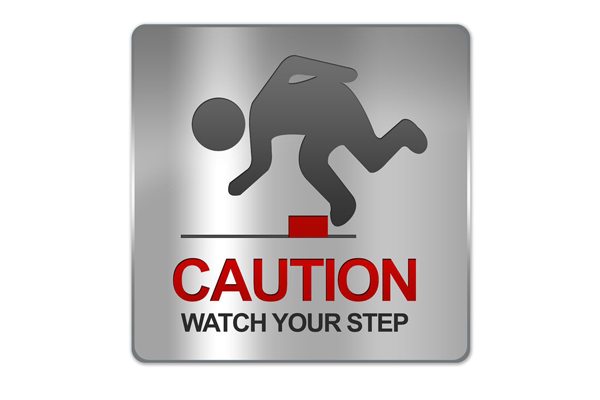CHICAGO, IL – Winter in Chicago is notorious for its icy sidewalks, snow-covered parking lots and unpredictable weather. While the season brings festive cheer, it also introduces significant risks for slip-and-fall accidents. For property owners and tenants, these conditions carry potential legal implications under premises liability laws.
What Is Premises Liability?
Premises liability is a legal concept that holds property owners or occupiers responsible for maintaining safe conditions on their premises. In Illinois, if someone is injured on a property due to negligence, the owner or occupier may be liable for damages. This includes ensuring that walkways, stairs, parking lots and other common areas are reasonably safe, particularly during winter.
Common Winter Hazards Leading to Slip-and-Fall Accidents
During Chicago’s winters, certain conditions become especially hazardous, leading to an increase in slip-and-fall accidents. Common culprits include:
- Icy Sidewalks and Walkways:
Accumulated snow that melts and refreezes often creates slippery surfaces. These icy patches are a frequent cause of injuries during the winter months. - Snow-Covered Parking Lots:
Poorly maintained parking lots with uneven surfaces hidden under snow can lead to unexpected falls or twisted ankles. - Improperly Cleared Entryways:
Wet floors inside buildings caused by tracked-in snow or slush can be equally dangerous. - Falling Snow and Ice from Roofs:
Accumulated snow and ice that fall from roofs or awnings can cause severe injuries to pedestrians.
Responsibilities of Property Owners and Tenants
In Chicago, property owners and tenants have a legal duty to take reasonable steps to prevent slip-and-fall hazards during winter. This duty includes:
- Clearing Snow and Ice Promptly:
Chicago’s Municipal Code requires property owners to remove snow and ice from sidewalks adjacent to their property. Residential property owners must clear snow by 10:00 a.m. if it falls overnight. - Salting or Sanding Icy Areas:
Applying salt, sand or another de-icing agent can minimize the risk of icy surfaces. - Maintaining Common Areas:
For multi-unit properties, landlords must ensure entryways, stairs, and parking lots are clear and safe. - Posting Warnings for Hazards:
If immediate removal isn’t possible, posting warning signs for slippery conditions can reduce liability risks.
Legal Implications of Slip-and-Fall Accidents
Illinois law examines the circumstances to determine whether the property owner or tenant is liable when someone suffers a slip-and-fall accident. Key factors include:
- Duty of Care: Did the owner or occupier have a duty to maintain the property safely?
- Reasonable Action: Did they take reasonable steps to address hazards, such as clearing snow or applying de-icer?
- Contributory Negligence: Was the injured person partly responsible for their fall, such as wearing improper footwear? Illinois follows a “modified comparative negligence” rule, which means a plaintiff can recover damages if they are less than 50% at fault for their injuries.
Tips for Property Owners and Tenants to Minimize Liability
To reduce the risk of slip-and-fall accidents and potential lawsuits during winter, property owners and tenants should be proactive with snow removal by using the correct de-icing materials like salt or sand to address icy conditions quickly. You should perform routine checks of high-traffic areas to ensure they remain free from hazards, too. Furthermore, you should install mats and signage for wet areas. If snow or ice removal becomes overwhelming, consider hiring a professional service to handle it.
Seeking Legal Help for Winter Slip-and-Fall Cases
If you’ve been injured in a slip-and-fall accident due to winter hazards, it’s crucial to seek legal advice. Premises liability cases often involve complex factors, and having an experienced attorney can help you navigate the legal process and secure fair compensation.
At the Dinizulu Law Group, we specialize in helping Chicago residents with premises liability claims. Our dedicated team understands the unique challenges posed by winter weather and is here to fight for your rights. Don’t let winter weather catch you off guard — know your rights and stay safe this season. To receive a free consultation, call us today at (312) 384-1920 to learn your options.



